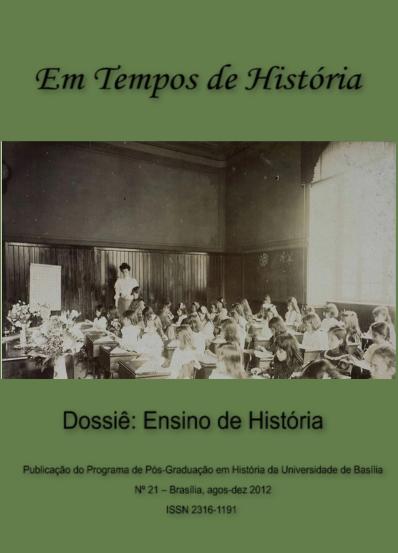A memória, o esquecimento e o compromisso do historiador
DOI:
https://doi.org/10.26512/emtempos.v0i21.19842Keywords:
Memory, History, Human RightsAbstract
This article starts with the discussion about what memory is, what uses we make of memory and the past and if these memories can be abusively appropriated by others. What are the ethics a historian must adopt to use memories as sources? A certain social and ethical responsibility is demanded of those who decide to work with the past. In between amnesis and anamnesis, individual and collective identities are formed. In this sense, a memory that is used in an abusive manner can define some of the patterns of identity of a society. Lastly, is there an ethical difference between those who work with present time and those who work with more remote times? The article discusses these issues making a parallel between the authoritarian regimes that sprung up around the world in the 20th Century and the Brazilian National Commission for Truth (Comissão Nacional da Verdade), which aims to analyze crimes committed by the Brazilian government during the period from 1946 to 1988.
Downloads
References
BAETS, Antoon. “O impacto da Declaração Universal dos Direitos Humanos no estudo da História”, em História da Historiografia (Ouro Preto), 5 (setembro 2010), p.86-114.
________________. “A Declaration of the Responsibilities of Present Generations toward Past Generations”, em History and Theory 43 (2004), p. 130-164.
BILAC, Olavo. Defesa nacional: Discursos(a). Rio de janeiro: Bibliex, 1965.
Brasil. Congresso nacional. Projeto de lei n° 7376/2010 que cria a Comissão Nacional da Verdade. Brasília, 2010.
Brasil. Secretaria de Educação Fundamental.Parâmetros curriculares nacionais : história, geografia/ Secretaria de Educação Fundamental. ”“ Brasília :MEC/SEF, 1997.
CATROGA, Fernando. Memória, história e historiografia. Coimbra: Quarteto, 2001.
FURET, François. Oficina da história(a). Lisboa: Gradiva, 1989.
GINZBURG, Carlo. The Judge and the Historian: marginal notes on a late-twentieth-century miscarriage of justice. New York: Verso, 2002.
________________. Olhos de madeira: Nove reflexões sobre a distancia. São Paulo: Companhia das Letras, 2001.
GUIMARÃES, Manoel Luís Salgado. O Instituto Histórico e Geográfico Brasileiro e o Projeto de uma História Nacional. Em Estudos Históricos. Rio de Janeiro, n°1: 1988, p.5-27.
KOSELLECK, Reinhart. Futuro passado: contribuição à semântica dos tempos históricos. Rio de Janeiro: Contraponto, 2006.
RICOEUR, Paul. A memória, a história, o esquecimento. Campinas, SP: UNICAMP, 2010.
SARLO, Beatriz. Tempo pasado: cultura da memória e guinada subjetiva. São Paulo/Belo Horizonte: Companhia das Letras/ Editora UFMG, 2007.
TODOROV, Tezvetan. Memoria Del mal, tentación Del bien ”“ Iindagación sobre El siglo XX. Barcelona: Ediciones Península, 2002.
Downloads
Published
How to Cite
Issue
Section
License
Autores que publicam nesta revista concordam com os seguintes termos:
- Autores mantém os direitos autorais e concedem à revista o direito de primeira publicação, sendo o trabalho simultaneamente licenciado sob a Creative Commons Attribution License , licença que permite que outros remixem, adaptem e criem a partir do seu trabalho para fins não comerciais, e embora os novos trabalhos tenham de lhe atribuir o devido crédito e não possam ser usados para fins comerciais, os usuários não têm de licenciar esses trabalhos derivados sob os mesmos termos.
- Autores têm autorização para assumir contratos adicionais separadamente, para distribuição não-exclusiva da versão do trabalho publicada nesta revista (ex.: publicar em repositório institucional ou como capítulo de livro), com reconhecimento de autoria e publicação inicial nesta revista.
- Autores têm permissão e são estimulados a publicar e distribuir seu trabalho online (ex.: em repositórios institucionais ou na sua página pessoal) a qualquer ponto antes ou durante o processo editorial, já que isso pode gerar alterações produtivas, bem como aumentar o impacto e a citação do trabalho publicado (Veja O Efeito do Acesso Livre).













